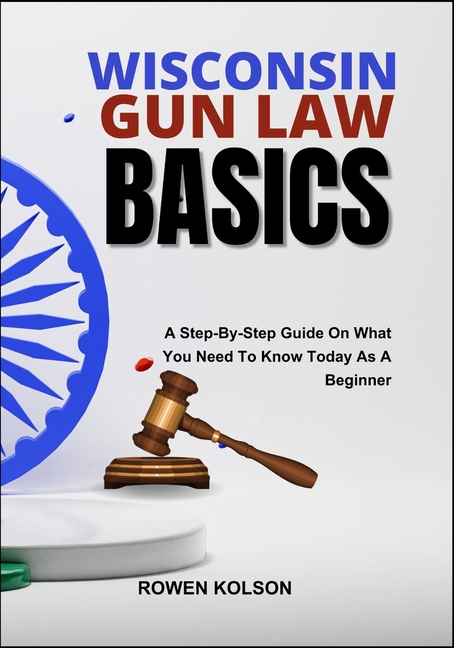Description
Wisconsin's gun laws are designed to balance the rights of individuals to own and carry firearms with public safety considerations. The state is known for relatively permissive gun regulations compared to many others in the U.S.
One of the key features of Wisconsin law is the allowance of permitless carry (also known as constitutional carry) for concealed handguns by adults 18 years and older who are legally allowed to possess firearms. This means that residents can carry a concealed handgun without obtaining a permit, a law in effect since 2011.
At the same time, Wisconsin maintains a system for those who choose to obtain a concealed carry license (CCW), which provides reciprocity with other states and may be required in certain situations. Open carry of firearms is also generally permitted without a license for adults.
Wisconsin does not require firearm registration, nor does it impose limits on magazine capacities or ban specific types of firearms such as assault weapons. The state follows federal guidelines on background checks, requiring them for purchases through licensed dealers but not for private sales.
Certain restrictions apply, including prohibitions on firearm possession by convicted felons, individuals with certain mental health adjudications, and in specific locations such as schools and government buildings. While Wisconsin does not have a statewide "red flag" law, private property owners can prohibit firearms on their premises.
Wisconsin's gun laws emphasize responsible firearm ownership and individual rights, with a regulatory framework that reflects the state's cultural values and commitment to Second Amendment protections.
One of the key features of Wisconsin law is the allowance of permitless carry (also known as constitutional carry) for concealed handguns by adults 18 years and older who are legally allowed to possess firearms. This means that residents can carry a concealed handgun without obtaining a permit, a law in effect since 2011.
At the same time, Wisconsin maintains a system for those who choose to obtain a concealed carry license (CCW), which provides reciprocity with other states and may be required in certain situations. Open carry of firearms is also generally permitted without a license for adults.
Wisconsin does not require firearm registration, nor does it impose limits on magazine capacities or ban specific types of firearms such as assault weapons. The state follows federal guidelines on background checks, requiring them for purchases through licensed dealers but not for private sales.
Certain restrictions apply, including prohibitions on firearm possession by convicted felons, individuals with certain mental health adjudications, and in specific locations such as schools and government buildings. While Wisconsin does not have a statewide "red flag" law, private property owners can prohibit firearms on their premises.
Wisconsin's gun laws emphasize responsible firearm ownership and individual rights, with a regulatory framework that reflects the state's cultural values and commitment to Second Amendment protections.
Last updated on
Product Details
- Jun 25, 2025 Pub Date:
- 9798289664549 ISBN-10:
- 9798289664549 ISBN-13:
- English Language




